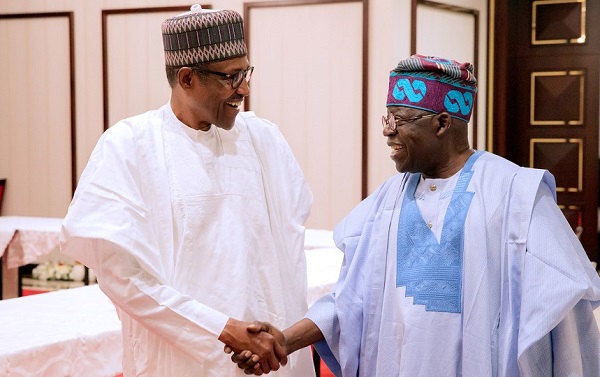This post has already been read 1332 times!
Since Asiwaju Bola Tinubu emerged the presidential candidate of the ruling All Progressives Congress (APC) and the debate about his choice of running mate assumed the centre stage, some of the narratives have been deliberately slanted to dismiss certain existential concerns and this might be treading a dangerous path.
Expectedly, not only is this expected to factor some geo-political balancing into accounts given the nation’s palpable fault lines, it cannot also discard the factor of religion, especially, given the state of the country today and the rather needlessly orchestrated rivalry between the two main religions.
Importantly, also, this has become very important, given the disposition of an average Muslim northerner to his Christian brother as though the latter does not exist, for whatever it is worth, and in almost all considerations.
Yet, some northerners acting as if they do not mind Tinubu running on a Muslim-Muslim ticket, is a subliminal message to the extent that they do not recognise the southern Muslim as a serious adherent of Islam. That is one notion Tinubu must correct and affirm that, he is not only a Muslim from the south, but a serious one and as such, must balance the ticket.
Over the years, it has always taken the Christian northerners the grace of God to become anything politically, particularly, those from the north West and North East. They work almost twice as their Muslim counterparts, but the emphasis on religion always relegated them to the background, irrespective of how much efforts that might have been put into the project.
This, again, is why Tinubu must not only avoid this slippery path to the 2023 elections, but must do everything humanly possible to ensure not just justice but an equitable balancing of the other equally critical elements to smoothening the national rough edges as well as assuaging religions imbalances.
For context, those selling the Muslim Muslim-Muslim Ticket or pretending not to be averse to it, were those who had said a Southern presidential candidate of the APC would mean defeat ab initio, alluding to the fact that the main opposition party, the PDP had chosen a northerner from the North East, in the person of Alhaji Atiku Abubakar.
Interestingly, from the North East are two important names, that accurately fill the search for running mate. They are former Speaker, House of Representatives, Yakubu Dogara and the Secretary to the Government of the Federation (SGF), Boss Mustapha.
Born to Yakubu Ganawuri and Saratu Yakubu on 26 December 1967, Dogara began his education in 1976, at Gwarangah Primary School in the then Tafawa Balewa Local Government Area of Bauchi State.
Upon graduation in 1982, he proceeded to the Bauchi Teachers’ College for his secondary education, and obtained a Grade II Teachers’ Certificate in 1987. In 1988, he went on to the University of Jos, Plateau State, from where he obtained a Bachelor of Law (LLB Hons.) degree in 1992.
From 1992 to 1993, Dogara was a student at the Lagos campus of the Nigerian Law School and was called to the bar in 1993. He later obtained a Masters (LLM) in International Commercial Law at Robert Gordon University, Aberdeen, Scotland.
Dogara attended a course on Managing and Leading Strategic Change in 2006, the Oxford University Course on Negotiation in 2013, and a course on Leadership in Crisis at the Harvard Kennedy School in 2014. In October 2016, after he had become Speaker of the House of Representatives, he attended a course on transformational leadership in Cambridge University, United Kingdom.
Dogara, a member of the APC in the House of Representatives for Bogoro/Dass/Tafawa Balewa Federal Constituency of Bauchi State since 2007, was speaker of the House in 2015. Although currently a member of APC, he recently defected to the PDP ahead of the 2019 election and returned after some irreconcilable differences with his governor, Bala Mohammed.
On his part, Mustapha, who got into politics in the 1980s after graduating from Law School,was between 1988 and 1989, a member of the Constituent Assembly, the body that drafted Nigeria’s Constitution in the Third Republic.
Mustapha was the Chairman of the Peoples Solidarity Party (PSP) in the defunct Gongola State in 1989, but the party was among those disbanded by the military junta of General Ibrahim Babangida.
Mustapha was a member of the presidential committee constituted by President Olusegun Obasanjo in 2000, to investigate the activities of the Petroleum Trust Fund under Muhammadu Buhari, who had earlier resigned his position as Executive Chairman of the body. The Interim Management Committee, did their work but the report was never made public.
Mustapha served as the Deputy Director-General to the presidential campaign of former Vice President Atiku Abubakar during the 2007 presidential election.
Mustapha was, however, the Deputy National Chairman of the Action Congress of Nigeria(ACN), one of the three legacy parties that merged to form the APC on February 6, 2013 ahead of the 2015 general election.
Mustapha, who, again ran for Adamawa governorship after the merger was consummated in 2014, served on the Buhari presidential campaigns and was among the members of its transition committee. A member of the APC board of trustees, Mustapha is presently the Secretary to the Government of the Federation.
Above all, when you weigh the two and their contributions to the party, then, there’s no debating the fact that Mustapha, has paid his dues more than Dogara. Not only did Dogara leave the party at some point, his speakership was also against the predilection of the APC leadership at the time, as he brazenly railed against the authority of the party at a huge cost to collective good.
But an obedient Mustapha, has always not just been a party man, he has remained one of the few northerners that’s very close to Tinubu from time immemorial. So, who else, if not Mustapha?
Garuba wrote from Abuja.



